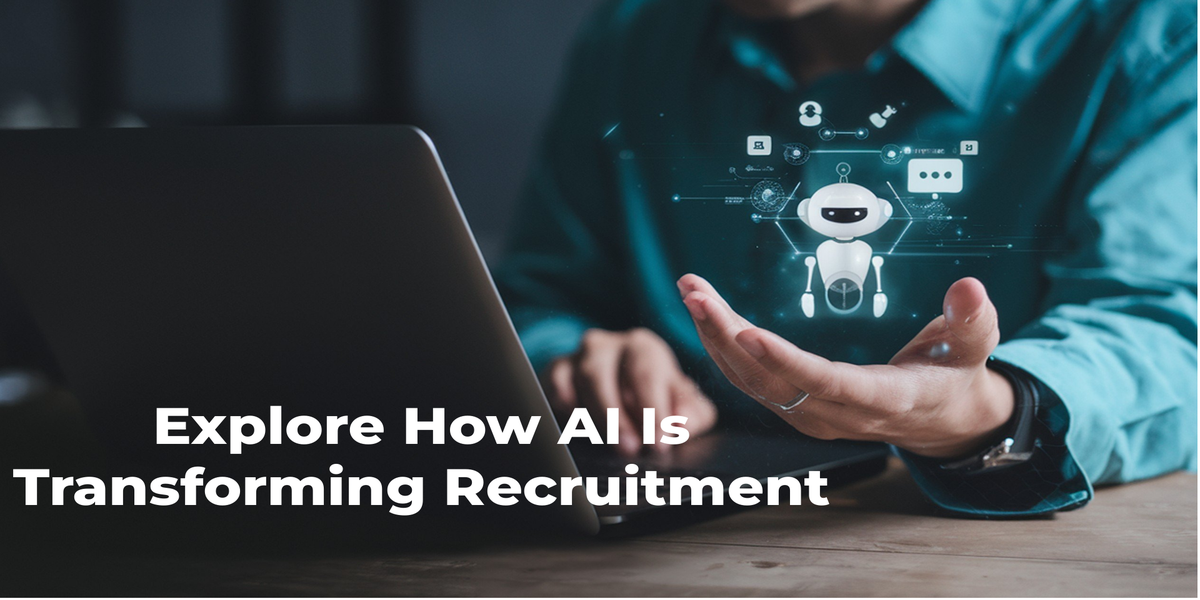Table of Contents
The world of recruitment has changed dramatically in recent years and Artificial Intelligence (AI) is right at the center of this transformation. What was once a manual, time-consuming process involving stacks of resumes, hours of screening, and endless interview rounds is now becoming smarter, faster, and more efficient thanks to AI-powered tools.
But what does this really mean for modern employers? Is AI just another buzzword, or is it truly reshaping the hiring landscape? Whether you’re a global enterprise or using an AI recruitment platform in India, these tools are quickly becoming essential to smart hiring
Let’s explore how AI is transforming recruitment and what it means for the future of hiring.
1. Smarter Resume Screening
For hiring managers, going through hundreds of resumes manually is a daunting task. It’s not just time-consuming, it’s prone to bias, fatigue, and human error. AI changes the game by automating the initial screening process.
Modern AI tools can quickly analyze resumes, scan for specific skills, experiences, and keywords, and rank candidates based on how well they match the job requirements. This doesn’t just speed things up, it also ensures a more consistent and objective screening process.
The result? Recruiters spend less time sifting through unqualified applications and more time focusing on top candidates. This is especially valuable for growing businesses using a recruitment platform in India to streamline hiring at scale, especially when integrated with a top recruitment aggregator platform.
2. Improved Candidate Matching
AI doesn’t just look for keywords, it learns from data. Over time, it can identify patterns in hiring decisions and improve its recommendations. Many platforms now use machine learning algorithms to match candidates with roles that best fit their experience, skills, and even personality traits.
This means companies are more likely to find the right person for the job, not just someone who looks good on paper.
3. Automated Communication
Let’s face it: one of the biggest pain points for job seekers is the dreaded silence after submitting an application. AI-powered chatbots and automated messaging systems help bridge this gap by keeping candidates in the loop.
These tools can answer FAQs, schedule interviews, send follow-up messages, and even provide status updates, ensuring a better candidate experience and saving recruiters from countless emails.
4. Reducing Unconscious Bias
Hiring bias—often unintentional, can affect diversity and inclusion in the workplace. AI, when trained responsibly, can help mitigate this by focusing on data and skills rather than names, photos, or backgrounds.
Some tools even anonymize resumes during the initial screening phase, ensuring that decisions are made based on merit, not unconscious preferences.
5. Predictive Analytics for Better Hiring Decisions
AI doesn’t just help with finding talent, it can also help predict performance. By analyzing data from previous hires, AI can offer insights into which candidates are likely to succeed, stay longer, or fit well into the company culture.
These insights help employers make more informed decisions, reducing turnover and increasing long-term employee satisfaction.
6. Efficiency Without Losing the Human Touch
One common concern is that AI might make recruitment feel robotic or impersonal. But when used correctly, AI doesn’t replace human recruiters. it empowers them.
By handling repetitive tasks like screening, scheduling, and messaging, AI frees up time for recruiters to focus on what they do best: building relationships, understanding team dynamics, and evaluating soft skills during interviews.
Final Thoughts
AI is not here to take over recruitment, it’s here to transform it. For modern employers, it means faster hiring cycles, better candidate matches, and smarter decisions. But more importantly, it offers an opportunity to create a hiring process that’s not just efficient, but also fair, engaging, and human at its core.
Embracing AI in recruitment is no longer optional. It’s a strategic move that helps companies stay competitive, attract top talent, and build stronger teams for the future.

